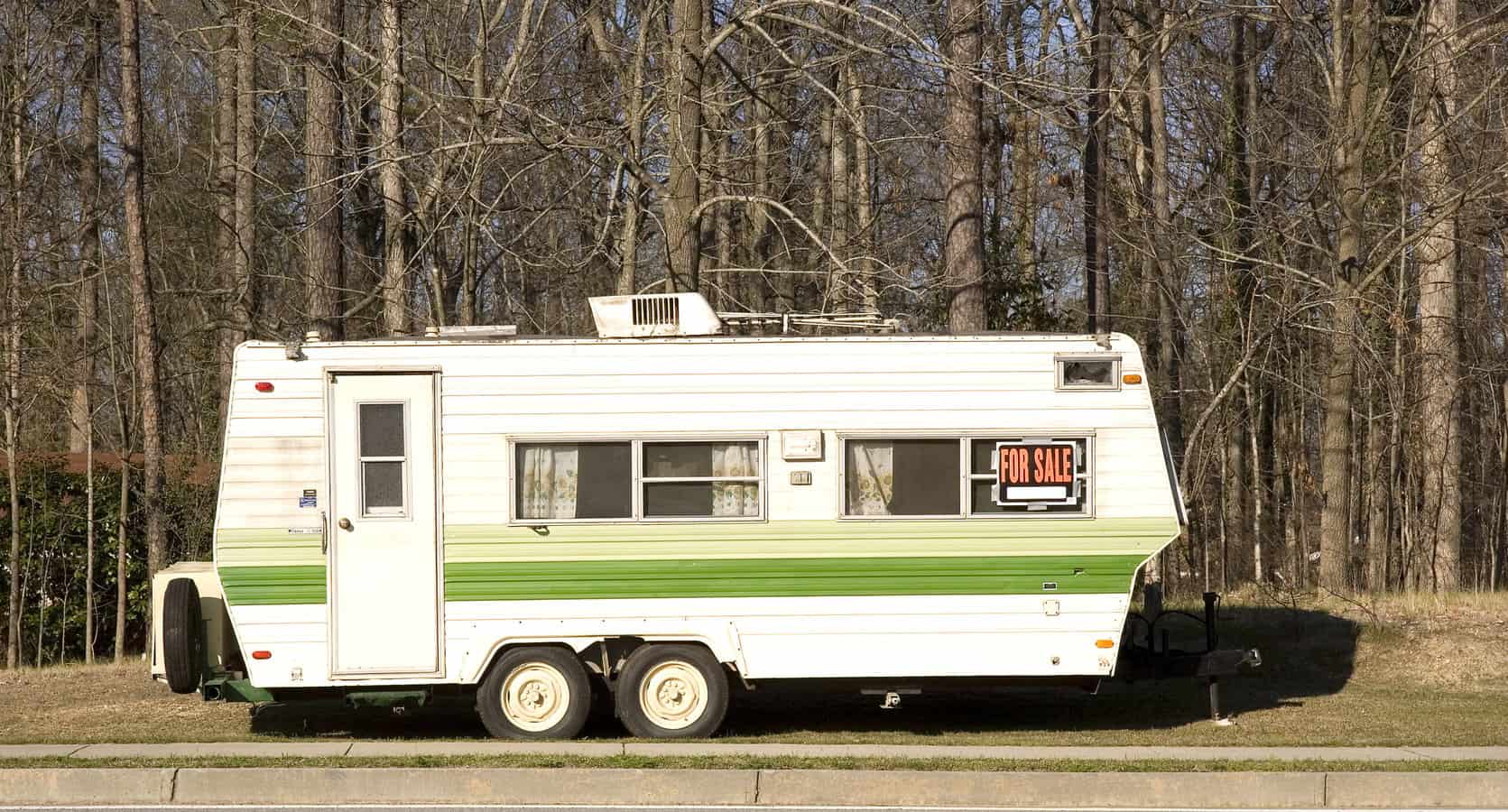
A lot of people doing research on fifth wheel trailers want to know if they sway and roll over. So, I’ve put together an article that will help you understand the fifth wheel trailer’s towing capabilities and hazards.
So, can fifth wheel trailers sway and roll over? Fifth wheel trailers can be a stable option for towing a vehicle you can live in. However, they also can sway and roll over, making it dangerous for anyone trying to ride in a fifth wheel trailer while it is being towed. Using proper safety measures greatly reduces the likelihood of swaying and rolling.
If you are an avid trailer fan, you own a fifth wheel trailer, or you are looking to buy one, you might want to know a little bit more about the hazards of fifth wheel trailers as well as the pros.
I’ve filled this article with information that can help you understand everything you need to know about a fifth wheel trailer.
Why Does a Fifth Wheel Trailer Sway and Roll Over?
If you own a fifth wheel trailer, or you are planning on buying one, you might want to know what can cause a fifth wheel trailer to sway and roll over. Generally, a fifth wheel trailer is one of the safer trailer options and does not often sway and roll.
Since RVs don’t require a special license to drive, you will need to teach yourself the proper driving techniques to prevent swaying or rolling, especially on the highway.
Like any vehicle, there is a potential for accidents to happen. These accidents are caused by things like speeding and wind speed, improper towing vehicle, and bad hitch weight distribution.
Since RVs don’t require a special license to drive, you will need to teach yourself the proper driving techniques to prevent swaying or rolling, especially on the highway.
Similarly, if the hitch is not attached properly, your fifth wheel trailer might fishtail. That fishtail motion, or swaying, can create a counterweight that is hard to control while driving and can lead to accidents.
How to Fix Swaying and Rolling Hazards in Fifth Wheel Trailers
Odds are, you don’t want your trailer to sway and roll over, so I’ve put together some solutions to the common problems that could cause your fifth wheel to roll over.
The first thing you can do is make sure you are towing your fifth wheel trailer with the proper vehicle. Now, this varies depending on your fifth wheel trailer.
Be sure to check your vehicle’s towing capabilities, so you know if your vehicle can town the weight of your fifth wheel trailer.
If you don’t have a vehicle that can support the weight of a fifth wheel trailer, you should either get a lighter trailer or find a vehicle that is capable of towing a fifth wheel trailer.
Another thing you can do to keep your fifth wheel trailer from swaying or rolling is using a sway bar or other type of tool that evens out the
When you do this, you ensure that your trailer is secure and not putting a strain on the vehicle that is towing it.
By bring the trailer level, you ensure that it will not put a drag on your vehicle that will cause it to lose control in a high wind situation.
You should also always check that your hitch is secure before starting a road trip. If your hitch is not secure, your fifth wheel trailer could come loose and start rolling on its own. This is very dangerous and could cause other drivers to be injured.
The weather is another important element in determining the rolling risk factor. If there is high wind, you should drive slowly. I would recommend not putting on the breaks quickly in
If you put the breaks on quickly, you run the risk of losing control of your vehicle as well as your trailer and causing your fifth wheel trailer to roll.
This is especially true if you are going downhill. If you are going downhill and there are high winds and unsafe terrain, your trailer can roll if you don’t know how to manage this situation.
So, here’s what you do.
- Don’t apply the breaks quickly
- Keep a slow speed
- Use a lower gear to slow down
In the first place, try not to speed, so you don’t risk swaying. Doing these things will greatly reduce your risk of rolling your fifth wheel trailer, but be aware that there are other conditions that could cause you to roll. Always drive cautiously.
Laws About Riding in a Fifth Wheel Trailer
Some states allow passengers to ride in fifth wheel trailers while others do not. It is important to consider the safety risks as well as state laws before letting passengers ride in fifth wheel trailers.
So, how do you know what the laws and risks are for riding in a fifth wheel trailer? Well, we’ve already established that fifth wheel trailers have the potential to roll over and sway on the road, so that already creates a risky situation.
Even if you are a safe driver, you should consider what could happen to passengers in an accident.
Some fifth wheel trailers have seat belts included inside them, but since a majority of states don’t allow passengers in a fifth wheel trailer while it is being towed, there are fifth wheel trailers that do not have seatbelts.
This means that passengers will not have safety measures while they are riding inside of a fifth wheel trailer.
I know that I personally would not want my kids riding in a fifth wheel trailer without safety measures.
You also can’t predict when an accident will occur, so not allowing passengers to ride in a fifth wheel trailer is a smart choice strait off.
You could always install seat belts in your fifth wheel camper if you live in a state where it is legal for passengers to ride inside of it, but keep in mind while you are traveling that you will need to know all of the states that this is legal in or else you could get into some real trouble.
You can visit AAA Driving Laws to find out which states allow passengers in fifth wheel trailers. Remember that there is a very small number of states that allow you
Related Questions
What is better, a fifth wheel or a travel trailer? Fifth wheel trailers tend to sway less, and the heavier the trailer the greater the sway from it. However, there are more factors outside of safety to consider when buying a trailer. For example, travel trailers are more affordable and generally smaller in size.
What are sway bars for trailers? A sway bar is a device that helps level out your trailer so you can get it at the proper height and weight for towing. Using this tool will help keep your trailer steady and secure as well.
Can a half ton truck tow a fifth wheel trailer? It is possible for a half ton truck to tow a fifth wheel trailer, but it is not recommended since it doesn’t have as much power to accomplish this. This also depends on the weight of the fifth wheel trailer for success.




Do they even make sway bars for 5th wheels? I’ve never ever seen one on any 5th wheel.
On travel trailers, yes, but never on a 5th wheel.